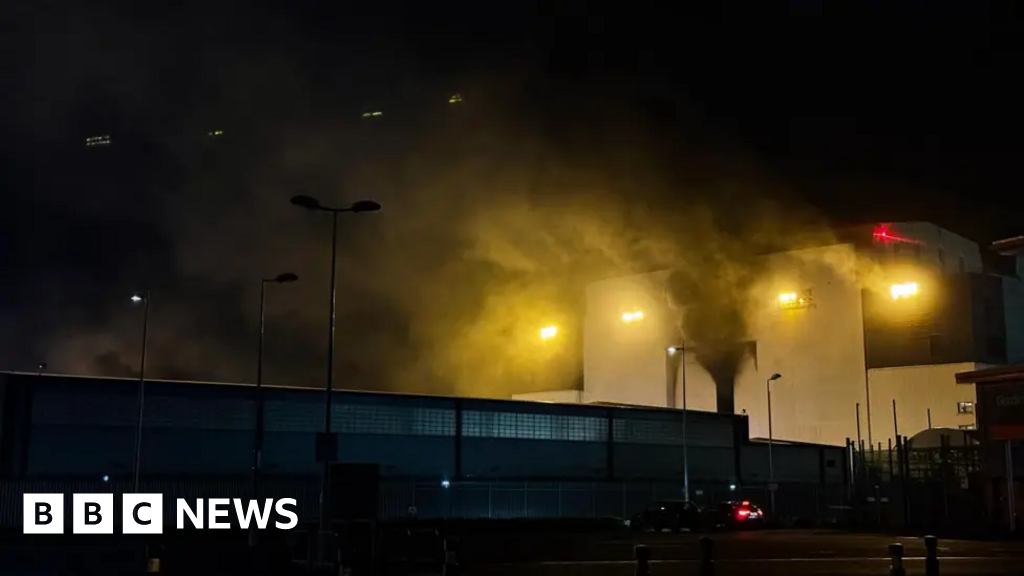With no new orders for the Royal Air Force, BAE Systems shuts down one of its Eurofighter Typhoon production lines in the United Kingdom
In a troubling development for the UK’s aerospace industry, BAE Systems has begun dismantling its final assembly line for Eurofighter Typhoon fighter jets at the Warton plant in Lancashire. The move comes in response to a lack of new orders from both the Royal Air Force (RAF) and international clients, forcing the company to reassign hundreds of workers to other factories or RAF bases.

The announcement has sparked strong criticism from Unite, the UK’s largest defense and aerospace union, which accused the British government of abandoning its commitment to the domestic defense industry. “We are witnessing an act of national self-harm,” said Unite General Secretary Sharon Graham, adding: “The government promised to turn defense spending into growth, jobs, and British skills, but is allowing a critical production line to die without securing the future of its own air fleet.”
For years, Unite has pushed the Ministry of Defence (MoD) to acquire a fourth batch of Typhoon fighters, known in their most advanced version as Tranche 5, to replace the RAF’s aging fleet. The Typhoon program previously sustained over 21,000 highly skilled jobs and contributed approximately £1.6 billion annually to the UK economy. Today, with no confirmed domestic or export orders, those jobs are at risk.

This setback comes on the heels of Prime Minister Keir Starmer’s recent decision to move forward with the purchase of 12 stealth F-35A jets — primarily manufactured in the United States — which he claimed would restore the RAF’s nuclear strike capability for the first time since the 1990s. The decision is seen as a move to demonstrate Europe’s commitment to collective defense, amid pressure from former US President Donald Trump for NATO allies to reduce reliance on Washington.
Unite warns that this growing reliance on US technology could result in the permanent loss of strategic industrial skills unless a new domestic Typhoon order is placed soon. “Instead of preparing our workers for the future and maintaining our own fighter-building capability, the government seems content to let these skills disappear,” Graham warned.
Earlier this year, when the F-35A purchase was still under discussion, the union had warned that the deal would support roughly 2,000 jobs for only two to three months. In contrast, Unite’s proposal for 24 new Eurofighters would sustain around 26,000 jobs across BAE Systems, Rolls Royce, Leonardo, and the rest of the supply chain for two years.

BAE Systems has stated it still maintains a significant workload at its Samlesbury plant — where components such as the Typhoon’s forward fuselage and tail section are built — thanks to ongoing contracts with Spain (45 units), Germany (38), and Italy (up to 24). However, the company acknowledged that the loss of final assembly operations at Warton could weaken the UK’s production chain if no new exports or domestic orders are secured.
The development of the GCAP (Global Combat Air Programme), the future sixth-generation fighter jet being developed by the UK, Italy, and Japan, also faces uncertainty. Reassigning workers from Warton to other sites risks losing highly specialized talent who may decline relocation.
Rhys McCarthy, Unite’s national officer for aerospace, was blunt: “The government suggests that export orders will fill the gap until GCAP arrives, but none have materialized. It’s hard to convince the world to buy a jet that your own country is unwilling to purchase.”

It’s also important to note that for any export of the Eurofighter Typhoon — in any of its variants — all four consortium partners (the UK, Spain, Italy, and Germany) must agree. This shared governance has occasionally created bottlenecks in international negotiations. A clear example is Turkey, where the UK sought to sell a batch of 40 Typhoons, but Germany withheld approval — a position that only changed late last year. This requirement for unanimous consent remains a barrier to smoother contract negotiations.
*Images used for illustrative purposes only.
You may also like: The Royal Navy’s nuclear attack submarine HMS Astute is preparing to begin its mid-life upgrade
You may also like...
Diddy's Legal Troubles & Racketeering Trial

Music mogul Sean 'Diddy' Combs was acquitted of sex trafficking and racketeering charges but convicted on transportation...
Thomas Partey Facing Rape & Sexual Assault Charges

Former Arsenal midfielder Thomas Partey has been formally charged with multiple counts of rape and sexual assault by UK ...
Nigerian University Admission Policy Changes

JAMB has clarified its admission policies, rectifying a student's status, reiterating the necessity of its Central Admis...
Ghana's Economic Reforms & Gold Sector Initiatives

Ghana is undertaking a comprehensive economic overhaul with President John Dramani Mahama's 24-Hour Economy and Accelera...
WAFCON 2024 African Women's Football Tournament

The 2024 Women's Africa Cup of Nations opened with thrilling matches, seeing Nigeria's Super Falcons secure a dominant 3...
Emergence & Dynamics of Nigeria's ADC Coalition

A new opposition coalition, led by the African Democratic Congress (ADC), is emerging to challenge President Bola Ahmed ...
Demise of Olubadan of Ibadanland
Oba Owolabi Olakulehin, the 43rd Olubadan of Ibadanland, has died at 90, concluding a life of distinguished service in t...
Death of Nigerian Goalkeeping Legend Peter Rufai

Nigerian football mourns the death of legendary Super Eagles goalkeeper Peter Rufai, who passed away at 61. Known as 'Do...




